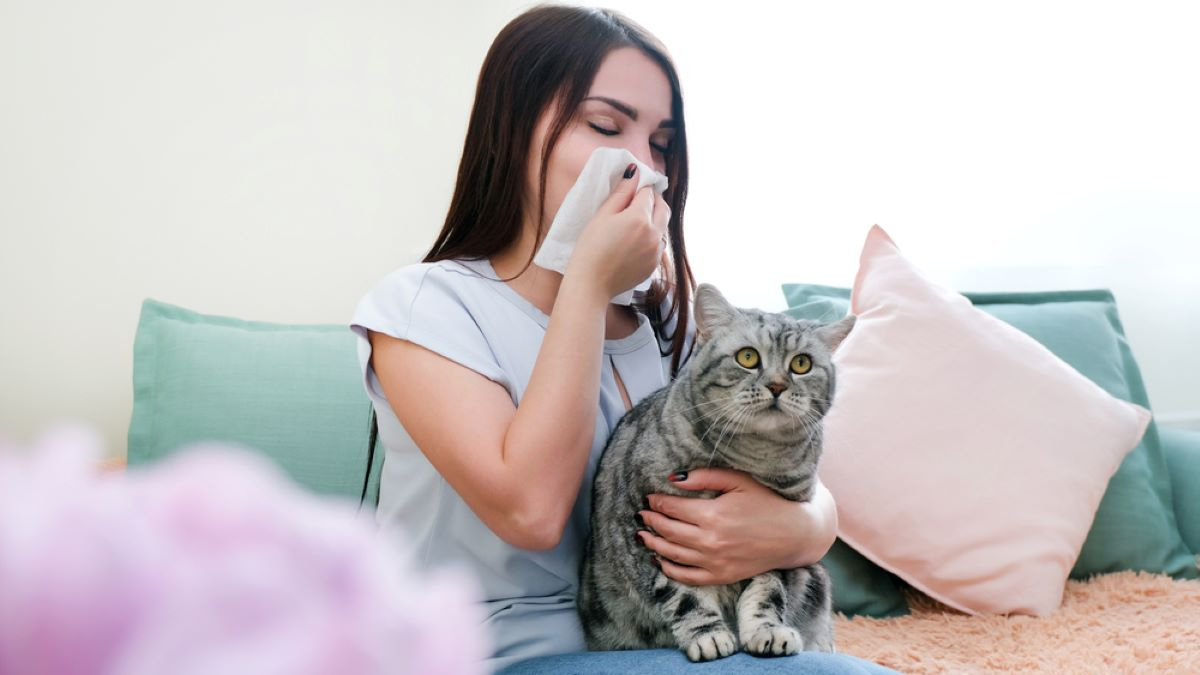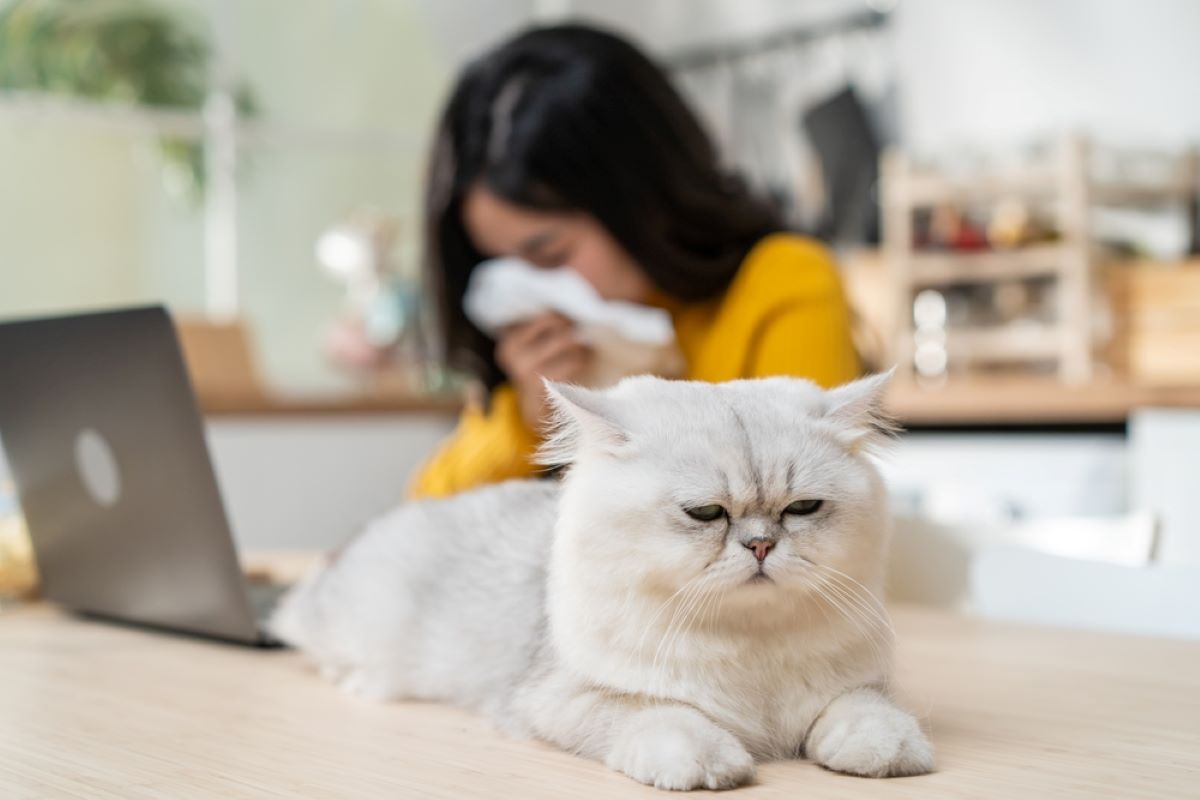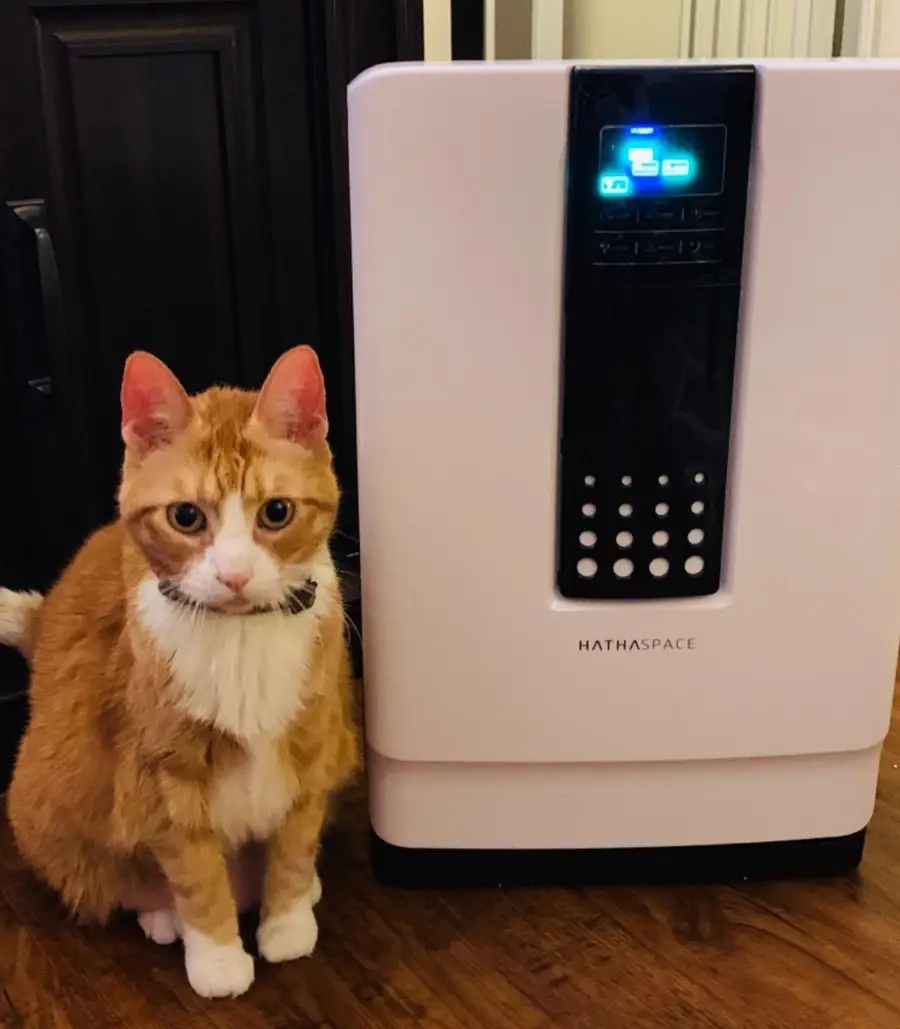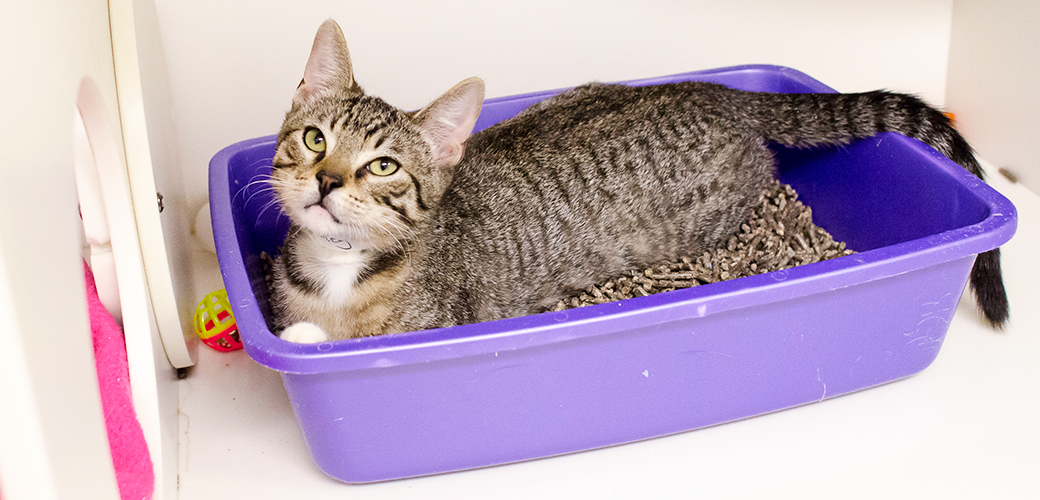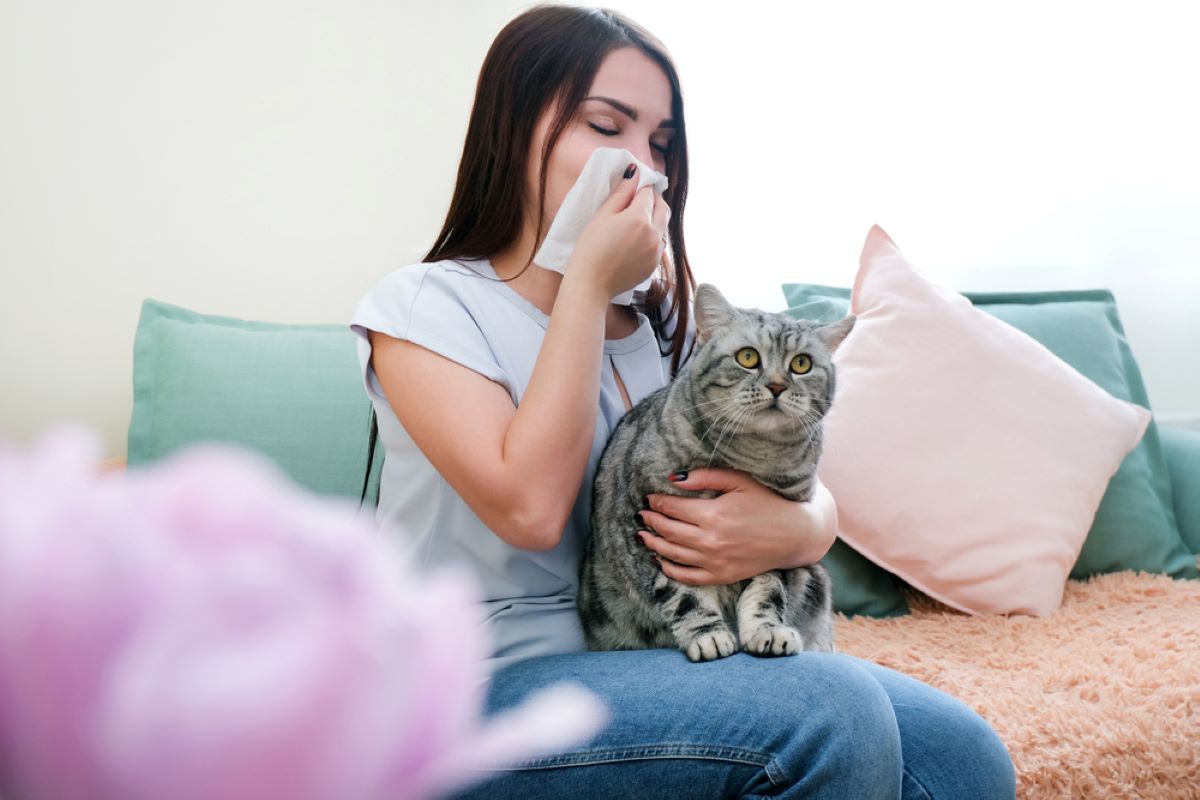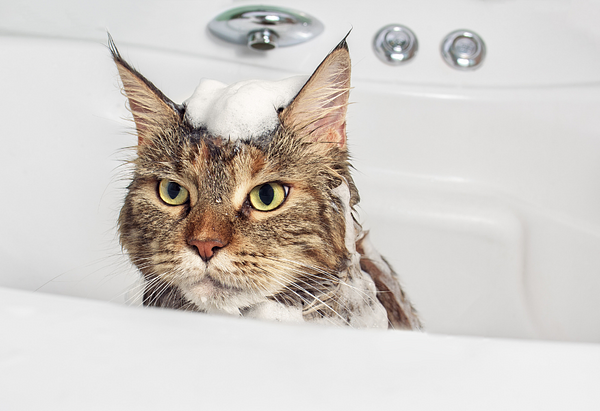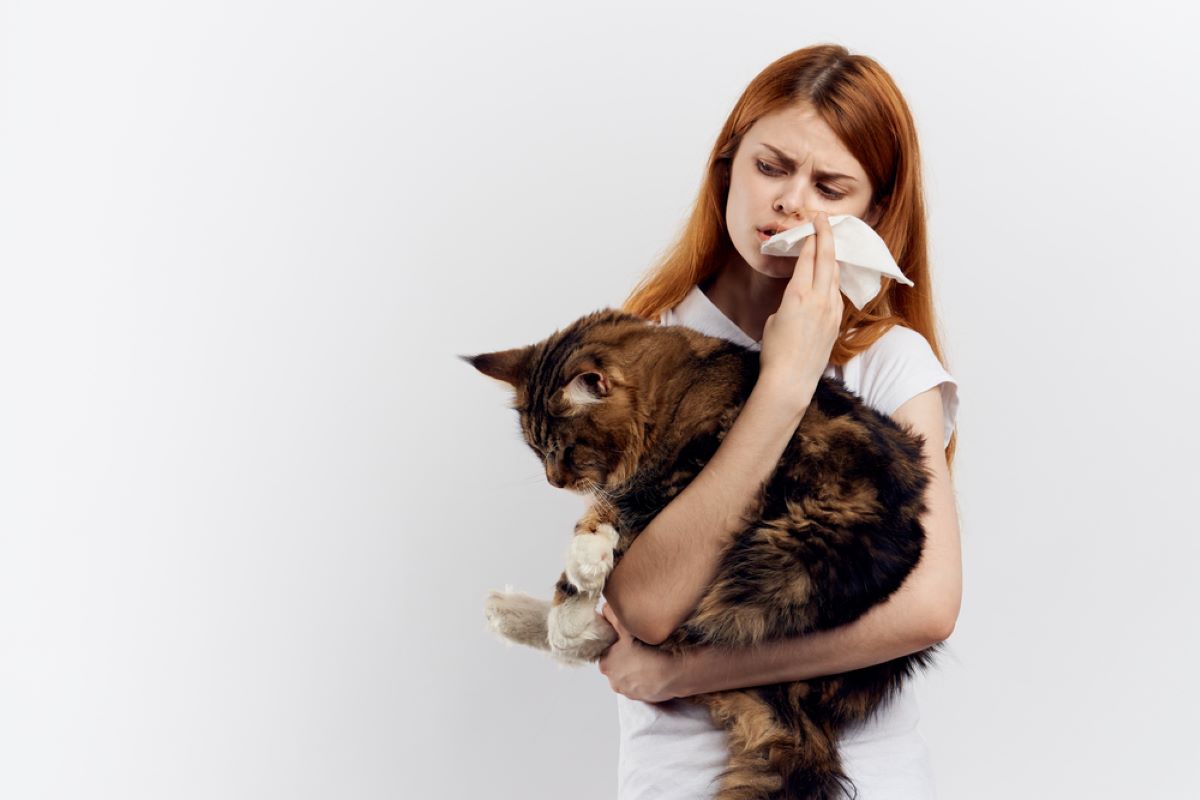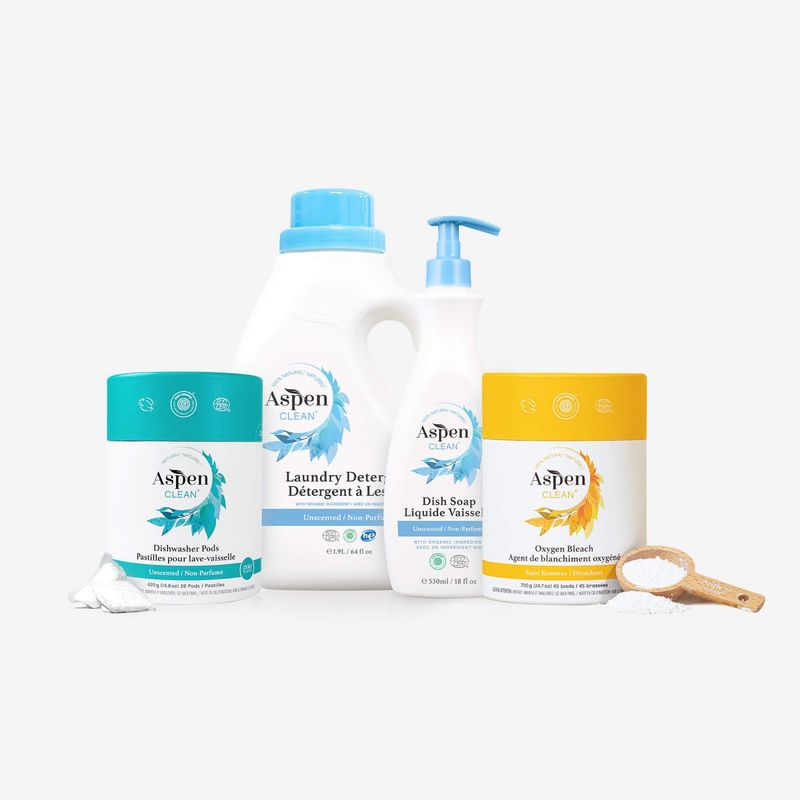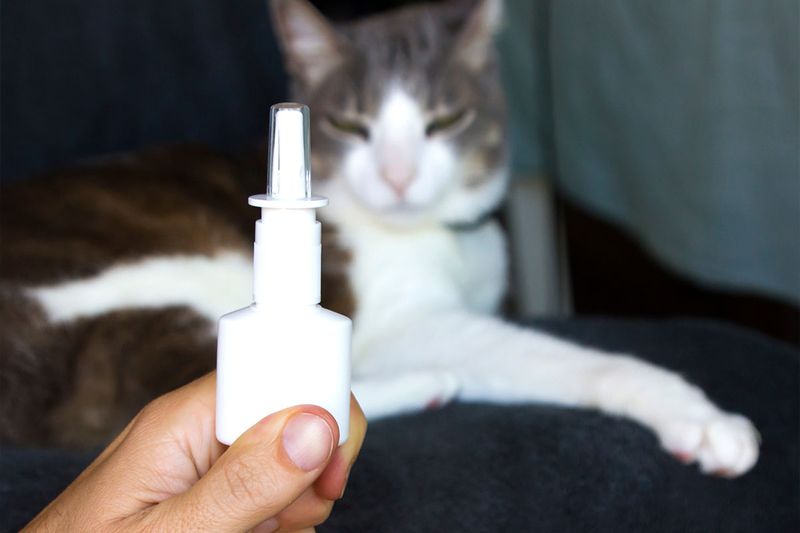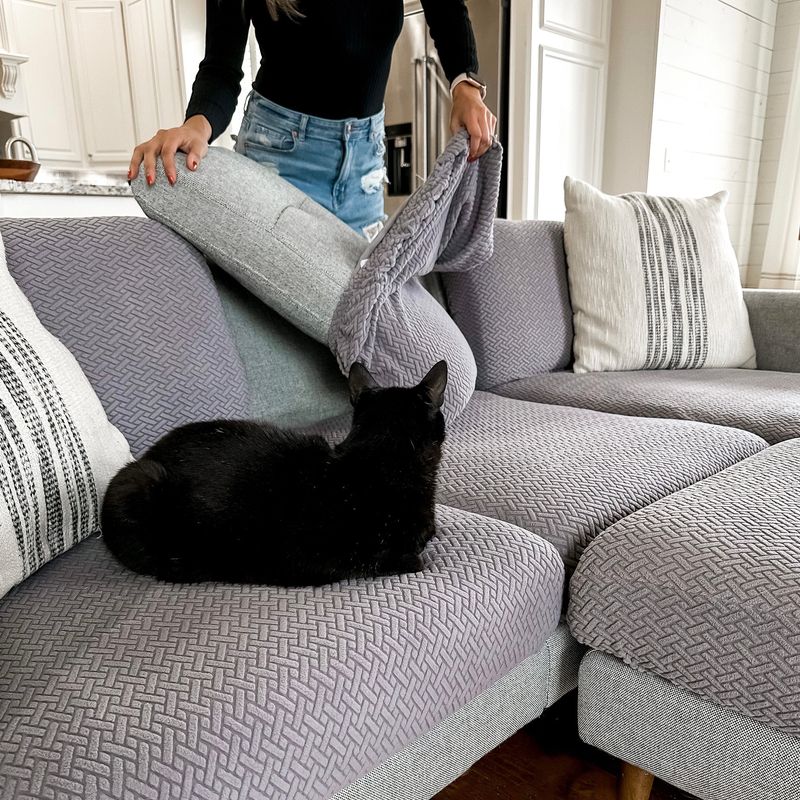📖 Table of Content:
- 1. Keep Your Bed Off Limits
- 2. Wash Your Sheets Regularly
- 3. Improve Your Vacuuming and Dusting Game
- 4. A HEPA Air Purifier Is a Lifesaver
- 5. Change Your Cat’s Litter Regularly
- 6. Groom Your Furbaby Daily
- 7. Give Your Feline a Bath
- 8. Change Her Diet
- 9. Use Hypoallergenic Cleaning Products
- 10. Install an Air Filtration System
- 11. Open Windows for Better Airflow
- 12. Create an Allergy-Free Zone
- 13. Clean Your Cat’s Toys Regularly
- 14. Use Anti-Allergen Sprays
- 15. Cover Furniture With Washable Throws
Being allergic to your fur bestie or having a partner who gets the sniffles just by being close to your kitty must be one of the biggest challenges for a cat parent. It’s a constant battle and a true definition of “love hurts.” That’s when you start thinking about how to get rid of cat allergies naturally.
It’s hard to believe that something as innocent as cuddling with your cat can cause uncontrollable sneezing fits. Don’t worry, you’re among 10-20% of the world population with cat allergies, so you’re not alone. And no, you definitely don’t have to give your sweet feline away!
Although allergy medications always help, there are a lot of natural methods that can make living with cat allergies a lot easier. Believe me, it’s very much possible. You just have to work a bit harder than the rest of us to make it as pleasant as possible.
If you’re tired of sneezing and wheezing every time you hang out with your cat, but also tired of the drowsiness allergy meds can cause – we’ve got you covered. First, let’s learn about the allergy that’s giving you a hard time, and then see how to get rid of cat allergies naturally.
1. Keep Your Bed Off Limits
Since cat allergens are so small and “sticky”, they can easily get into your bedding. To avoid this, it would be a great idea to try and keep your little cuddle buddy off your bed. I know, it’s not easy for either of you, but it’s for the best.
No matter how cute it is, cuddling your feline to sleep can make your allergies a lot worse. Offering them an alternative place where they can sleep would be a game-changer for your sniffles and sneezes. Getting your cat a cat bed or a tree might make her fall in love with you even more. If there’s no way for you to keep your cat off your bed, you might have to keep her out of your bedroom altogether. It might be hard for you at first, but once you see how much better you feel, you’ll never look back.
2. Wash Your Sheets Regularly
If keeping your lovely feline off your bed is out of the question, then you might have to change your laundry habits. Regularly washing your clothes and bedding can reduce cat allergens significantly, leading to fewer allergic symptoms and reactions.
We advise washing your sheets weekly at a temperature of at least 130 °F. Even if your kitty doesn’t spend much time on your bed, or not at all, some of the allergens she emits can still get on the bedding. Because of that, it’s important to wash your pillows and sheets regularly to get rid of dander.
3. Improve Your Vacuuming and Dusting Game
Okay, so we’ve learned that allergens such as dander are the real issue here. That means we have to reduce it as much as possible. Vacuuming and dusting regularly can help you achieve that, plus it will help you keep your home spotless!
We’re not saying your house is messy, it’s just that the cat dander can get everywhere and in a short period of time. Removing excess from your surfaces and air is crucial in keeping your allergies under control. Vacuuming and dusting 2 times a week should do the trick. If you want to go the extra mile, we highly recommend you invest in a vacuum with a HEPA filter. It proved to be revolutionary for people with allergies.
4. A HEPA Air Purifier Is a Lifesaver
Just like a HEPA vacuum, an air purifier with this filter will change your life. These magic machines are 95% efficient at removing air pollutants and can eliminate dander and dust in the air.
If you can’t afford one in every room, don’t worry. Placing one in the room where you spend the most time should be enough. After all, this isn’t a must-have, no matter how much it helps. If you can’t afford one, regular vacuuming and dusting can be just enough.
5. Change Your Cat’s Litter Regularly
Since the Fel d1 protein can be found in cats’ bodily fluids, it’s important to keep them out of your home. Where can you find most of them? That’s right, in your kitty’s litter box. Her feces and urine are the biggest carriers of the allergen that’s making your life so hard.
Changing your cat’s litter every other day should be your go-to in the battle against allergens. Another thing you should pay attention to is to never change her litter inside. If you can, take her litter box outside and keep the allergens away from the air in your home.
6. Groom Your Furbaby Daily
If you’re lucky enough to have a feline who enjoys brushing, then this one will be perfect for both of you. Regular grooming is another way of fighting the allergies that are standing in the way of your furry bestie and you.
I know, it seems pretty contradictory. After brushing your kitty, you usually end up with cat hair all over you. But, brushing your cat regularly helps with getting rid of her hair buildup, and it reduces the dander that she’d otherwise spread all over your home. To avoid allergic reactions, we recommend you use a mask while grooming your furball. She might hate the whole process at first, but it’s very helpful when it comes to finding relief for your allergies.
7. Give Your Feline a Bath
Okay, this one your kitty is probably going to hate, so don’t tell her I told you this. Bathing your cat regularly can make all your allergy-free dreams come true.
It helps get rid of dander buildup, and it’s a great way to reduce the allergens in your home. As much as cats despise water, you have to stay strong and consistent. Washing your cat with the hypoallergenic product at least once a week will probably make all your symptoms go away. Especially if you incorporate other things on the list, too. No matter how much she hates bathing, your kitty loves being able to cuddle her favorite human more.
8. Change Her Diet
Sometimes, cat allergies are caused by your feline’s excessive shedding, which can be a result of her bad diet. Although it’s not as common, it would still be a good idea to monitor her and see if changing her diet will make any difference.
If you’re unsure of where to start or what to give her, you can always consult your vet. It’s the safest option for you and your kitty. Who knows, maybe you discover your feline’s new favorite meal, and find a way to keep your allergies under control.
9. Use Hypoallergenic Cleaning Products
Hypoallergenic cleaning products are a boon for those with cat allergies. These products minimize the presence of allergens without harsh chemicals. Look for labels that specify ‘hypoallergenic’ or ‘free from allergens.’ Clean surfaces like floors and countertops regularly.
Using these products helps reduce the allergen load in your home, making it a safer environment for allergy sufferers. They’re usually gentle on the skin and safe for pets. Incorporating such products into daily cleaning routines can ease allergic reactions and offer peace of mind for cat owners.
10. Install an Air Filtration System
Air filtration systems can dramatically improve air quality by removing allergens like dander. Look for systems with HEPA filters, as they capture tiny particles effectively.
Position the system in frequently used rooms to maximize its benefits. Regular maintenance of air filters is crucial to ensure efficiency. By filtering out allergens, these systems provide a more breathable environment, lessening symptoms for allergy sufferers. Investing in a quality air filtration system can be a game-changer for those wanting to coexist comfortably with their feline companions.
11. Open Windows for Better Airflow
A simple way to reduce allergens inside is by opening windows to let fresh air circulate. This helps lower allergen concentrations, making it easier to breathe.
Allowing natural ventilation can complement other allergy-reducing strategies. Ensure windows are open during low-pollen times to avoid introducing new allergens. This practice not only refreshes the indoor environment but also provides a natural method to manage allergen levels in your home, benefiting both you and your cat.
12. Create an Allergy-Free Zone
Setting up an allergy-free zone in your home, such as a bedroom, provides a break from allergens. Keeping cats out of this area helps ensure a restful, symptom-free space.
Keep this space clean and clutter-free, as dust can harbor allergens. Frequent washing of bedding in hot water helps remove any settled dander. Creating such a zone is a practical approach to managing allergies, allowing you to enjoy a peaceful, undisturbed sleep while loving your cat from afar.
13. Clean Your Cat’s Toys Regularly
Regular cleaning of your cat’s toys can help reduce allergens in your home. Toys often collect dander and saliva, becoming allergen hotspots.
Wash toys weekly using mild soap and hot water. Rotating toys can also give you time to clean and dry them thoroughly. This practice minimizes the allergen load, contributing to a healthier environment for both cats and owners. By keeping toys clean, you ensure your playful cat has safe items to enjoy, while also managing allergy symptoms effectively.
14. Use Anti-Allergen Sprays
Spraying anti-allergen solutions on upholstery can help reduce allergens. These sprays deactivate the proteins in the dander, making them less harmful.
Apply these sprays to furniture, carpets, and curtains regularly. Choose products specifically designed for pet allergens. This approach helps manage allergens without extensive cleaning, making it a convenient option. Regular use of anti-allergen sprays aids in maintaining a comfortable, allergy-friendly home, allowing you to enjoy quality time with your feline friend.
15. Cover Furniture With Washable Throws
Protect your furniture from cat allergens by covering it with washable throws. These throws help trap dander and fur, making it easier to keep allergens under control.
Choose machine-washable fabrics for easy cleaning. Regular washing of these throws in hot water can significantly reduce allergens in your living areas. This method not only protects your furniture but also simplifies allergen management. By regularly changing and washing throws, you maintain a cleaner, more comfortable environment for both you and your cat.
